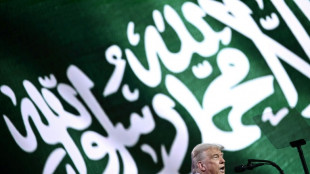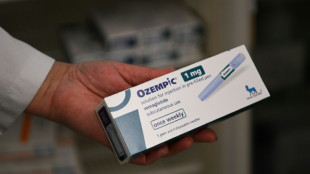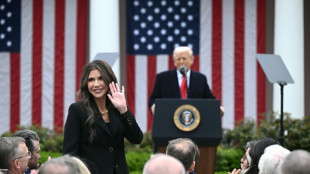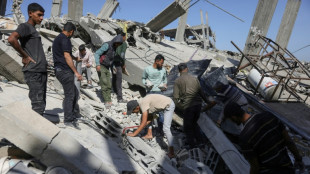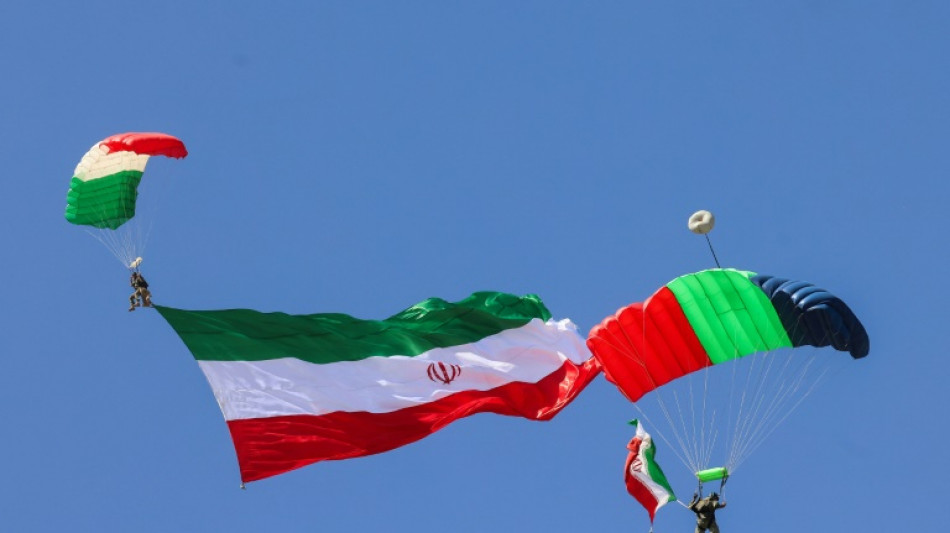

Iran, European powers hold nuclear talks in Turkey
Iranian negotiators began talks with Britain, France and Germany on Friday, a diplomatic source said, after US President Donald Trump said a nuclear deal with Tehran was "getting close".
The Istanbul meeting follows remarks by Iran's Foreign Minister Abbas Araghchi warning of "irreversible" consequences if the European powers move to reimpose United Nations sanctions that were lifted under a landmark 2015 agreement.
The diplomatic source, speaking on condition of anonymity, told AFP that the talks had begun and were set to end at around 1000 GMT.
Asked whether the talks may continue on Saturday, the source said: "No."
The three European countries, known as E3, were parties to the 2015 deal along with China, Russia and the United States.
But Trump had effectively torpedoed the deal during his first term in 2018, by unilaterally abandoning it and reimposing sanctions on Iran's banking sector and oil exports.
A year later, Iran responded by rolling back its own commitments under the deal, which provided relief from sanctions in return for UN-monitored restrictions on Iran's nuclear activities.
The three European powers have been weighing whether to trigger the 2015 deal's "snapback" mechanism, which would reinstate UN sanctions in response to Iranian non-compliance -- an option that expires in October.
Such a stance "risks provoking a global nuclear proliferation crisis that would primarily affect Europeans themselves, Iran's top diplomat warned.
However, writing in the French weekly Le Point, he also noted that Tehran was "ready to turn the page" in its relations with Europe.
Friday's meeting with the European powers comes less than a week after a fourth round of Iran-US nuclear talks which Tehran called "difficult but useful" and, according to a US official, left Washington "encouraged".
Araghchi has said the Istanbul meeting would be at deputy foreign minister level, and that the talks with the Europeans and the United States were proceeding on separate track, without elaborating.
- 'Getting close' -
China, which held recent talks with Iran on its nuclear programme, said ahead of Friday's talks that it remained "committed to promoting a political and diplomatic settlement of the Iran issue".
Beijing also "valued Iran's commitment to not develop nuclear weapons, respected Iran's peaceful use of nuclear energy and opposed all illegal unilateral sanctions", according to Chinese foreign ministry spokesman Lin Jian.
Speaking on a visit to Qatar Thursday, Trump said the United States was "getting close" to a deal with Iran that would avert military action.
"We're not going to be making any nuclear dust in Iran," he said.
The Oman-mediated Iran-US talks were the highest-level contact between the two foes since Washington abandoned the nuclear accord in 2018.
Since returning to office, Trump has revived his "maximum pressure" policy on Tehran, backing nuclear diplomacy but warning of military action if it fails.
On Thursday, US news website Axios reported that the Trump administration had given Iran a "written proposal" for a deal during the fourth round of talks on Sunday.
Araghchi denied the report, saying "we have not been given anything".
He added however that "we are ready to build trust and transparency about our nuclear programme in response to the lifting of sanctions."
Trump has said he presented Iran's leadership with an "olive branch", adding that it was an offer that would not last for ever.
He further threatened to impose "massive maximum pressure", including driving Iranian oil exports to zero if talks failed.
Iran currently enriches uranium to 60 percent, far above the 3.67-percent limit set in the 2015 deal but below the 90 percent needed for a nuclear warhead.
Tehran insists its right to continue enriching uranium for peaceful purposes is "non-negotiable" but says it would be open to temporary restrictions on how much uranium it enriches and to what level.
On Wednesday, Iran's atomic energy agency chief Mohammad Eslami reiterated that Tehran "does not seek nuclear militarisation", adding that enrichment was under the supervision of the UN nuclear watchdog.
"The dismantling of enrichment is not accepted by Iran," he stressed.
O.Klein--NRZ

